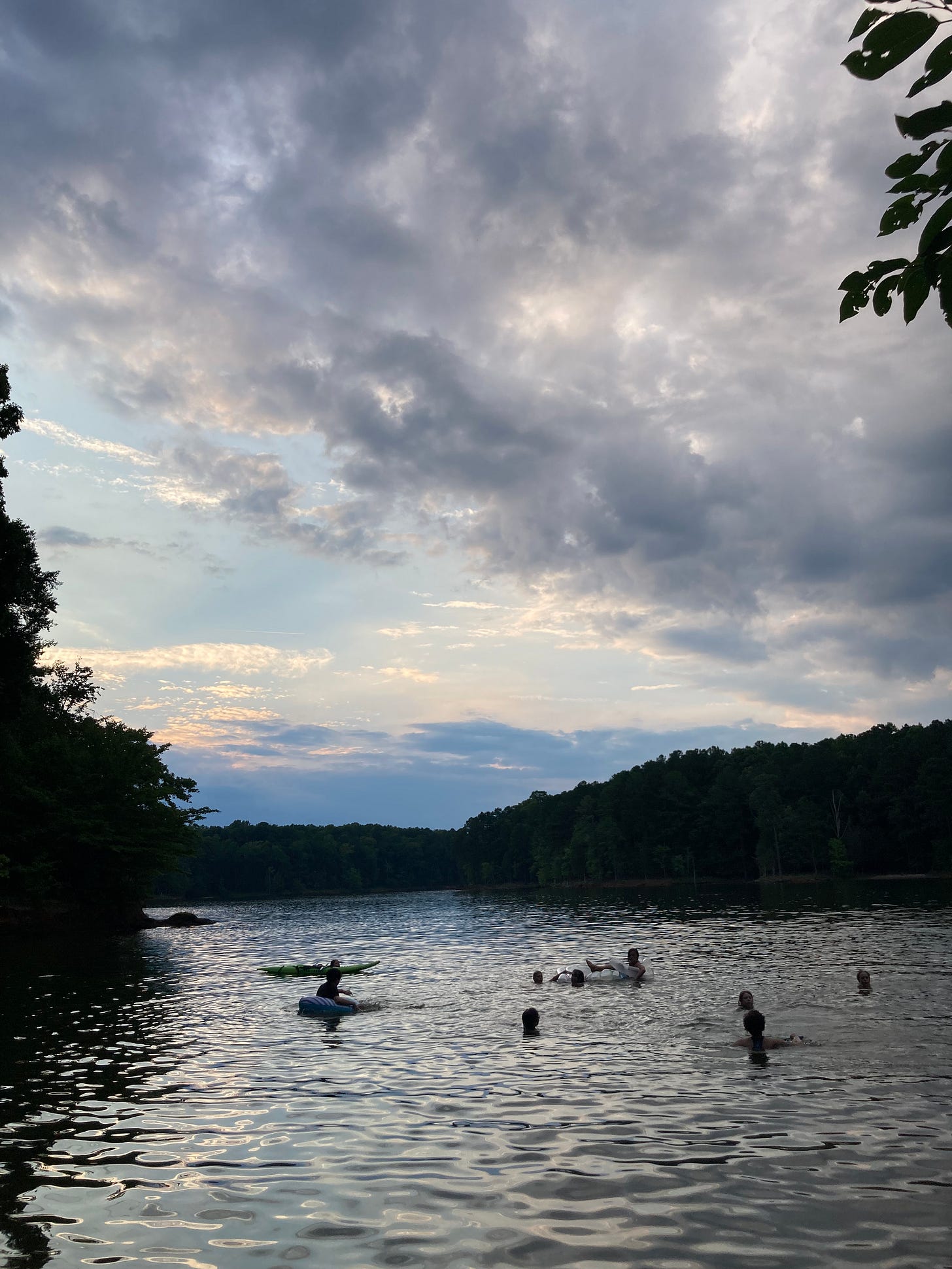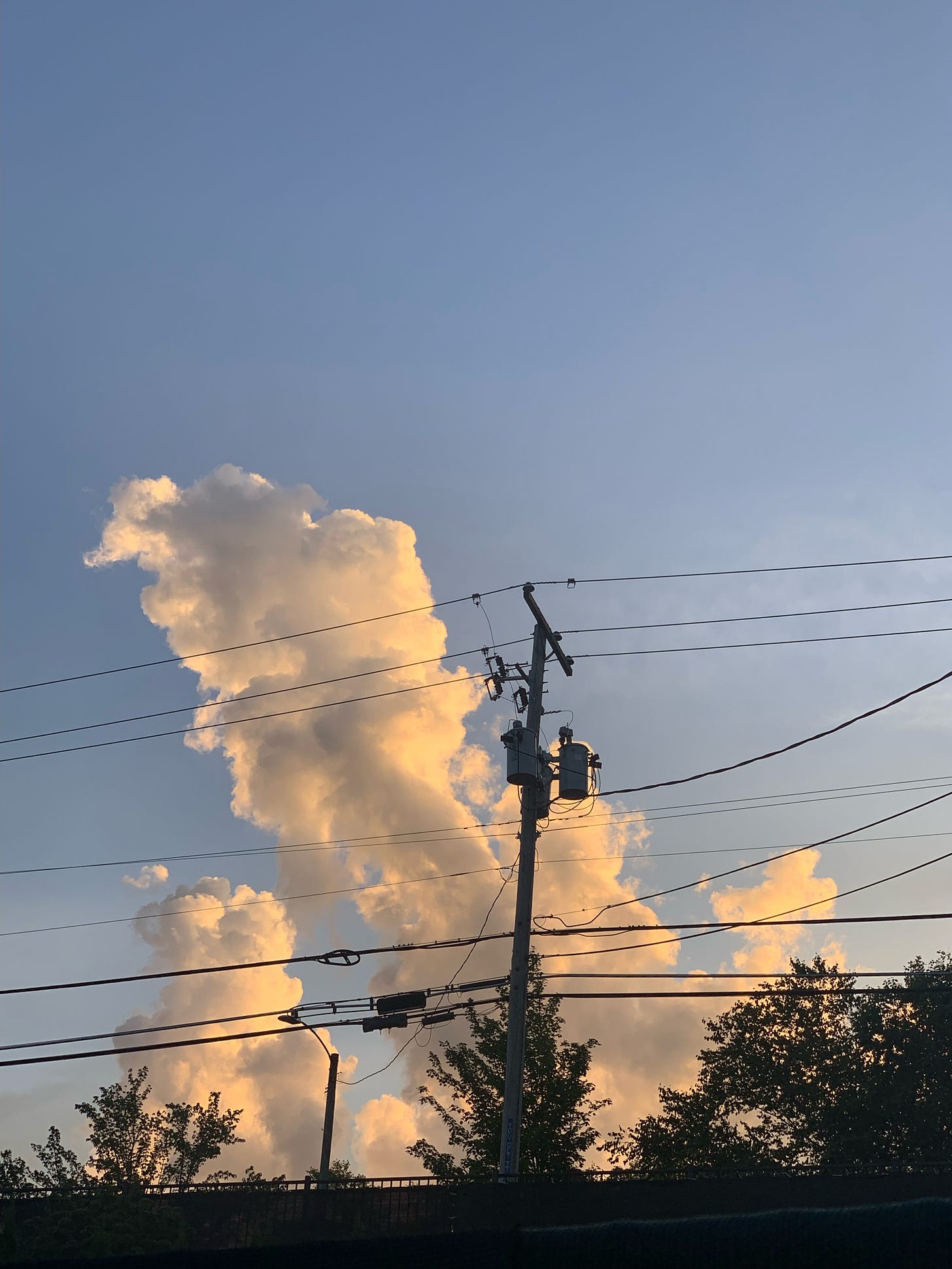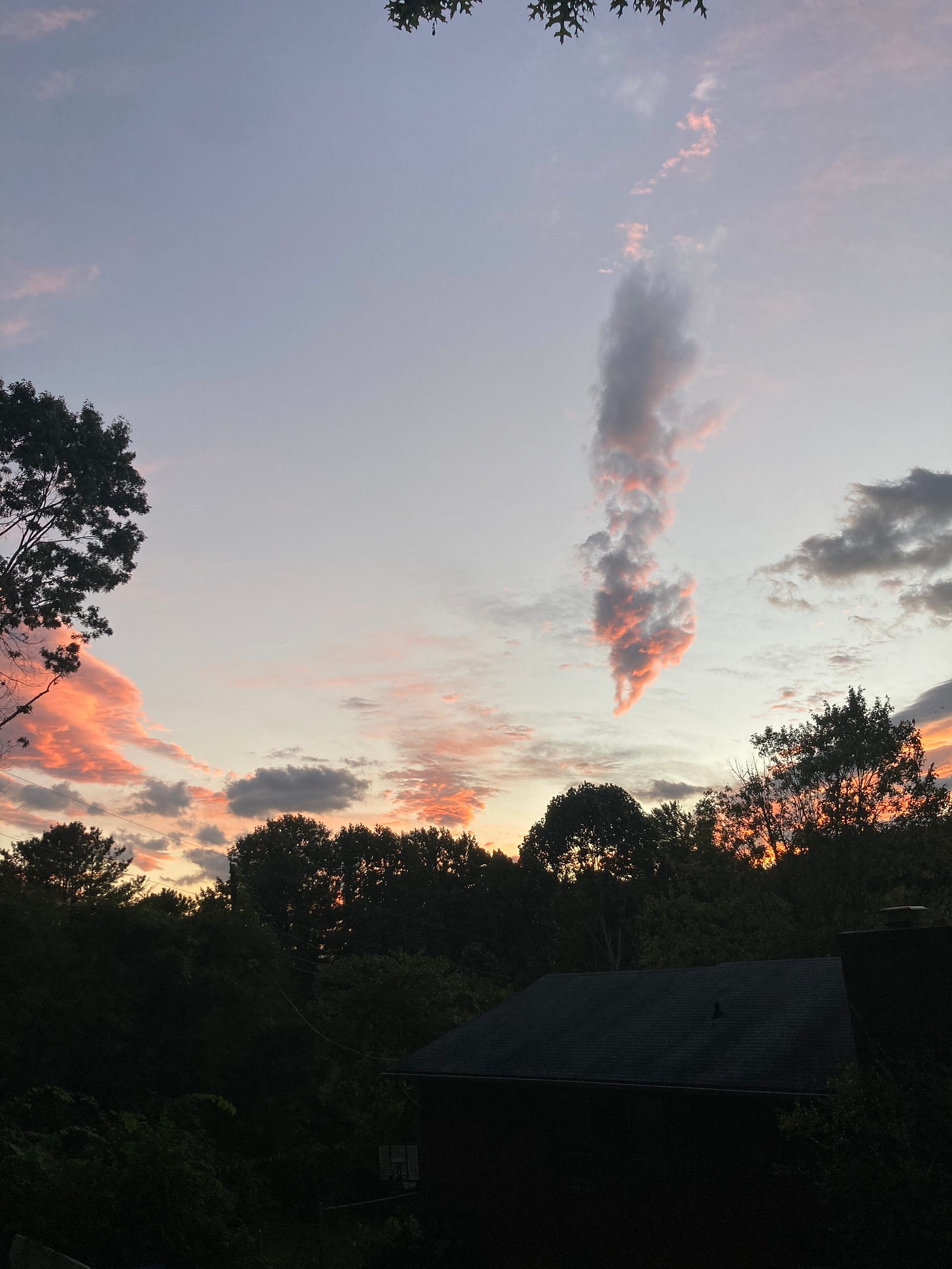End of summer is a genre, key components: lost innocence, lost love, no regrets. Every year as we approach the autumn equinox and the days get shorter, I feel all melancholy and nostalgic, but for what? I’m not a teenager.1 And even when I was, I wasn’t the kind who had summer flings, or went drinking by the river in the pale moonlight. I was the kind who loved new notebooks and cardigan sweaters. Still, the end of summer ache pulls at me every year.2
I guess in this cultural myth we have equated the end of the summer with the beginning of fall and with the return to school, but it doesn’t line up that way, at least it doesn’t anymore. We sweat through the first weeks of school, creating an unsettled, mixed-up micro-season, making the end of summer sadness happen twice, once when school begins, and once when daylight savings time ends, and you think now summer is actually giving up its fight.3
Or maybe the end of summer sadness is only for a shrinking swath of people, that group who can’t afford to send their kids to day camps all summer but can afford to have one parent stay home all summer. The shrinking middle class means maybe the lazy hazy crazy days of summer become even less real than they ever were. Our sacred text The Divine Secrets of the Ya-Ya Sisterhood tells us such things once happened, but we have never seen them ourselves.
Anyway, I’m behind on a couple of writing deadlines, and maybe that’s what the end of summer sadness is: the beginning of deadlines, the end of a season that was all possibility (“back when we were still changing for the better, wanting was enough –” but more than wanting is needed now, structures are needed, he’s going back to his old girlfriend and I’m going back to my same old seat, 2nd row, far right, near the door for an easy exit). This summer I might have become a different person, one with a tan, one with a girlfriend, one who finishes the stack of books, one who gets her syllabus written ahead of time for once. Summer ends, and we admit that we are still the same people we have always been, and all that possibility, those unstructured open never ending days that I thought would never end slipped away, and I didn’t even see it happen.4
Three Things:
As you probably know, my first book, Dangerous Territory, has a second edition being released in Oct/Nov. Yesterday the publishers revealed the new cover and subtitle here! (It feels so appropriate for a coming-of-age memoir, and I love the green.) It’s not available to order yet, but of course I’ll let you know when it is.
Speaking of coming of age memoirs, in July I read Stay True by Hua Hsu. It’s a quiet book, and best to go into it without knowing what’s coming, so that the quiet buzz of foreshadowing propels you, so I won’t say much about the plot, only that if you were in college in the nineties, and you remember the thrill of finding music before the internet, and making zines, and if you happen to be the kind of intense and nostalgic person I can sometimes be, you might love this book, and you might love the way Hsu manages to write about his younger self with compassion and also with the awareness that he might have been mildly insufferable at times. It comes out in paperback next week.
The end of summer playlist, of course.
PS: Last call: If you or someone you love is in the Asheville area, you are are invited to join my book club this fall! Details here — feel free to email me with questions.
Where Goodness Still Grows is available wherever books are sold. My first book, Dangerous Territory, has a second edition coming this fall; sign up for the Bracket newsletter to learn more.
But I am the mother of a teenager, and well, that sucks you right back in. Can I blame my emo moments on her now?
I know I shouldn’t be writing this. Even Sylvia Plath knew I shouldn’t be writing this. “Today is the first of August. It is hot, steamy and wet. It is raining. I am tempted to write a poem. But I remember what it said on one rejection slip: 'After a heavy rainfall, poems titled 'Rain' pour in from across the nation.’”
I love these lines, even if they are not quite appropriate in this case.
‘The harvest is past, the summer is ended,
and we are not saved.’ Jeremiah 8:20








The cover is so lovely!